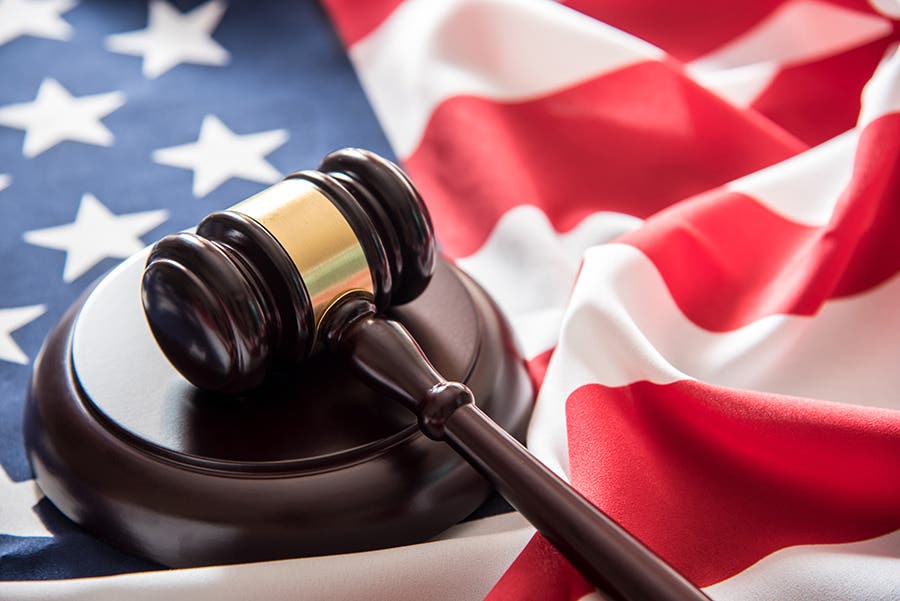Dismissing the Possibility of Gold Confiscation
A few days ago Jeff Thomas wrote a column for Doug Casey’s International Man titled, “Don’t Dismiss the Possibility of Gold Confiscation.” You can read this column here. While not…
A few days ago Jeff Thomas wrote a column for Doug Casey’s International Man titled, “Don’t Dismiss the Possibility of Gold Confiscation.” You can read this column here.
While not stating any probability that the U.S. government might at some point in the future attempt to confiscate privately held gold, he does claim that the risk is greater than almost anyone thinks.
For at least the past 15 years, I have written that the risk of the U.S. attempting to repeat the fully compensated mandatory gold redemption program as it did in 1933 or any form of gold confiscation was so minimal as to be close to zero. Not zero, but close to it.
In reading Thomas’ column, I find that the key fallacy in his argument that the risk is any higher is when he wrote, “The U.S. government has essentially run out of options.”
Here’s why I think this led him astray. Before the U.S. government would consider gold redemption or confiscation, I would expect it to take a different tactic first.
In the U.S., there are more than $10 trillion of assets in private retirement accounts (including precious metals individual retirement accounts). Congress first held hearings in 2006 about nationalizing all private retirement account assets, replacing them with government bonds. It would be much easier to sell this program to the public because it would be under the claim that the government was taking this step to “protect” people’s retirement balances.
So, one reason why I consider this to be a step taken prior to considering gold redemption or confiscation is that the idea of nationalizing private retirement assets has already been brought up in Congress. A second reason why I consider this a possibility is that multiple countries have already gone this route: Argentina, Hungary, Poland and possibly Spain. So, if the U.S. government has a much more practical alternative to confiscating gold, I expect that alternative would happen first.
There are other reasons why I consider the specter of gold redemption or confiscation to be remote. They include:
1. It was substantially illegal for Americans to acquire gold from 1933 to the end of 1974. Because of this, there are comparatively modest amounts of gold held privately by Americans. About a decade ago, I calculated that such a confiscation would not be able to bring in more than 80-100 million ounces of gold. Obtaining 100 million ounces of gold at $2,000 per ounce would only bring in $200 billion worth of assets. That total is a comparative drop in the bucket compared to the over $10 trillion in private retirement assets or compared to the $100 trillion or so of federal government debt and the net present value of unfunded liabilities for Social Security, Medicare and related programs.
2. The instant that the U.S. government would raise the specter that it was maybe going to call in gold, the value of the U.S. dollar would plummet. The central banks of China and Japan, each of which own about $1 trillion of U.S. Treasury debt would immediately want to repatriate all of it and expect the U.S. government to make good on all of it at full value. So, suggesting the possibility of gold redemption or confiscation would almost certainly collapse the dollar and the U.S. economy quickly. This would cost the U.S. government more than it could hope to gain from calling in gold. Bureaucrats in the U.S. government know this and would not want to risk causing this to happen.
3. In 1933, the gold recall was not confiscation. It was a mandatory redemption that was paid off in dollars that had the same purchasing power as the gold that was received. This was why people were not required to turn in gold coins of recognized collector value. Any program of gold redemption or confiscation would almost certainly require the U.S. government to pay holders at current fair market value of the gold.
4. In 1933, silver was not part of the mandatory fully-compensated redemption program. People who have any concerns about the possibility of gold redemption or confiscation could just purchase bullion-priced physical silver.
This does not exhaust all of the reasons why I consider the possibility of a future redemption or gold confiscation by the U.S. government to be almost zero. But I think you understand the general concept.
Patrick A. Heller was honored as a 2019 FUN Numismatic Ambassador. He is also the recipient of the American Numismatic Association 2018 Glenn Smedley Memorial Service Award, 2017 Exemplary Service Award, 2012 Harry Forman National Dealer of the Year Award and 2008 Presidential Award. Over the years, he has also been honored by the Numismatic Literary Guild (including in 2021 for Best Investment Newsletter), Professional Numismatists Guild, Industry Council for Tangible Assets and the Michigan State Numismatic Society. He is the communications officer of Liberty Coin Service in Lansing, Mich., and writes Liberty’s Outlook, a monthly newsletter on rare coins and precious metals subjects. Past newsletter issues can be viewed at www.libertycoinservice.com. Some of his radio commentaries titled “Things You ‘Know’ That Just Aren’t So, And Important News You Need To Know” can be heard at 8:45 a.m. Wednesday and Friday mornings on 1320-AM WILS in Lansing (which streams live and becomes part of the audio archives posted at www.1320wils.com).








